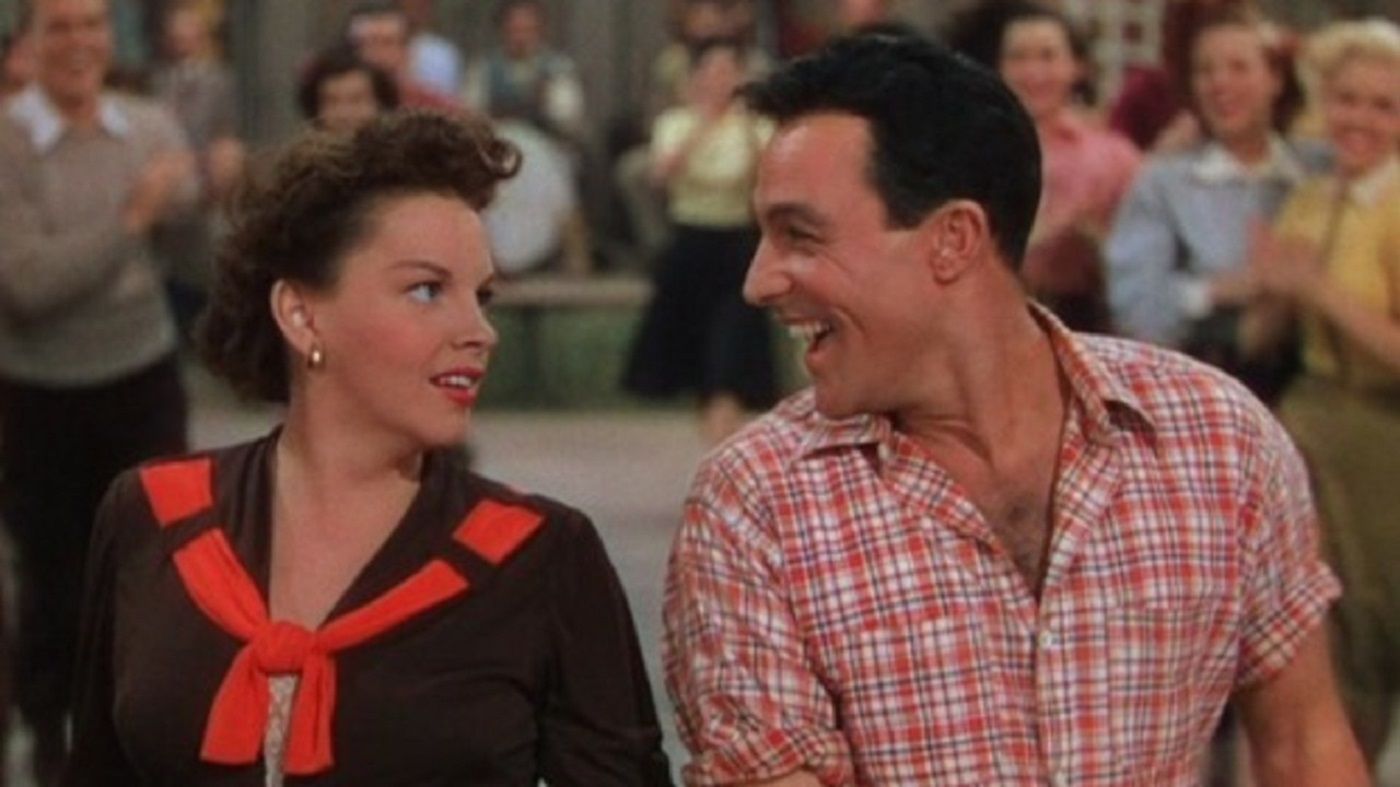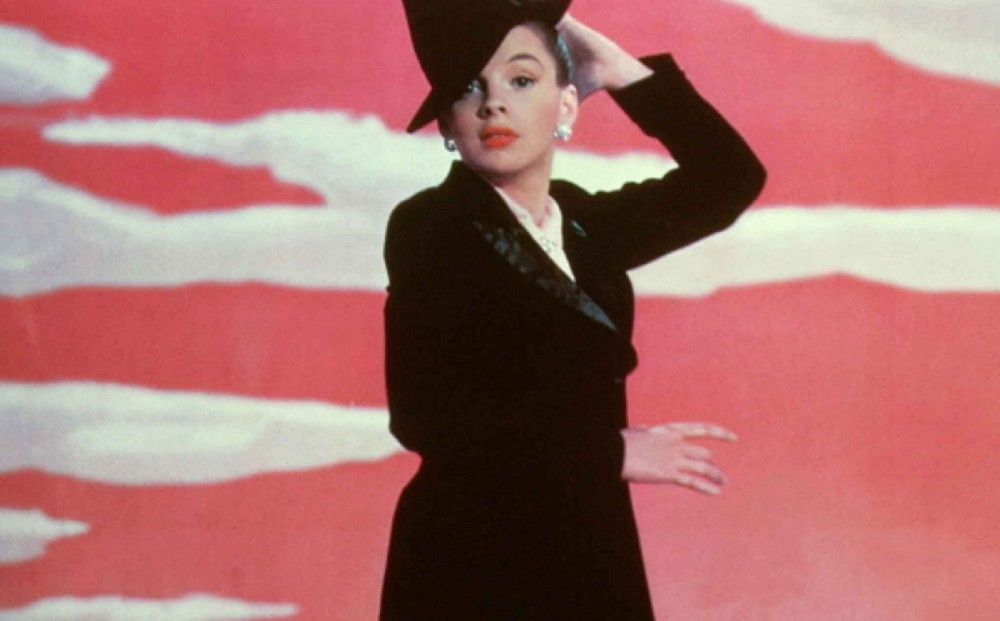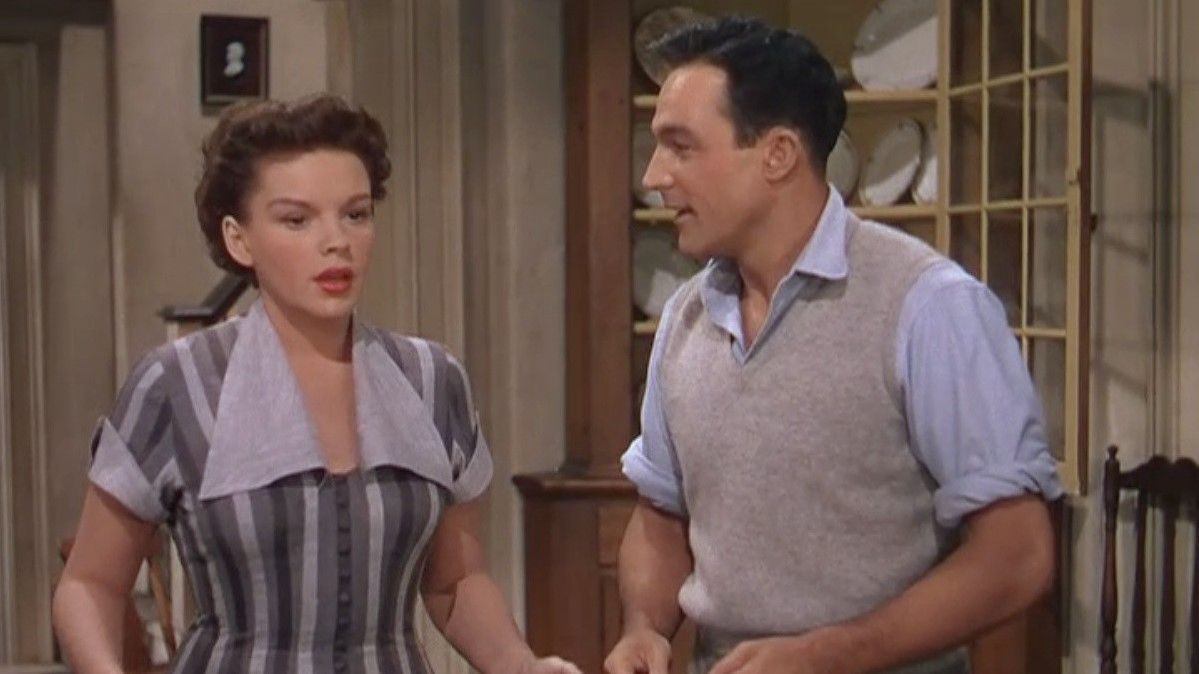From the late 1930s to '40s, Judy Garland was the biggest star at MGM, having cemented her place as Hollywood royalty with a plethora of starring roles in musical hits. Whether collecting dysfunctional friends as per The Wizard of Oz, singing about trolleys in Meet Me In St. Louis, or showing her mettle as a dramatic actress in The Clock, Jazz-Hands Judy was at the top of her game. Within this golden period came Busby Berkley’s For Me And My Gal, another sparkling MGM musical that saw Garland paired with charismatic and dreamy-eyed newbie, Gene Kelly. Kelly, 10 years her senior but without the Hollywood experience, let alone clout, found the 19-year-old actress was a gloriously supportive co-star and comrade, championing his casting, backing him in production squabbles (of which there were many), and guiding him through his transition from stage to screen. Thus began an on-screen partnership and off-screen loyalty that would help Garland maintain a career and a loyal friendship group.
Despite the numerous successes that would follow Me And My Gal, it became clear that by the late '40s, at only 21 years of age, Garland was struggling. However, 1948 brought about The Pirate, Vincente Minnelli’s comic swashbuckling adventure which saw Garland and Kelly reunited. But all was not well in Casa Garland, as production became increasingly volatile with the actress's enthusiasm at playing against type quickly overridden by a sense of being left behind in what was increasingly the Kelly-Minnelli show. Suffering from postpartum depression and an increasing reliance on prescription drugs, Garland experienced numerous panic attacks resulting in weeks of hospitalization during filming. Fortunately, Kelly and co were aware that these moments were more serious than diva antics, and more akin to a cry for help from a woman who had been overworked for over a decade. Of the 135 days shooting and rehearsing, Garland would be absent for 99.
Although initial responses to The Pirate were mixed, both Minnelli and Kelly refused to tell tales out of school, the former declaring it to be “one of Judy’s best performances,” and Kelly describing her presence as “superb.” This act of discretion, genuine or otherwise, was a saving grace for Garland, who managed to secure another star-cementing role that same year in Charles Walters’ Easter Parade, an opportunity which may not have come to fruition without the private support.
1950 would be the last time Garland made a film for MGM, which isn’t surprising considering the trauma she had endured under their watch that same year. Originally cast in Annie Get Your Gun, the studio system was in full Pygmalion mode, with a diet-before-dialogue mindset that saw Garland fired based on her weight. That’s right, kids, it wasn’t the depressive episodes, the panic attacks, or the reliance on medication, but the fact that at 27, she had more junk in the trunk. By this point the actress had already gone the full Christian Bale and dropped to 90 pounds, but the fat cats at MGM were having none of it and replaced her with Betty Hutton (who went on to receive critical acclaim in the role).
With her self-esteem in tatters and barbiturates replacing her five-a-day, the opportunity to regain control of her psyche not to mention her career came in the form of Charles Walters’ (yep, that angel again), Summer Stock. Another bright and joyous Technicolor musical, Summer Stock was pure feel good fodder, with a nonsensical plot surrounding a group of performers who do chores in exchange for rehearsal space. Yup. But as with most musicals of the day, popularity lay within the personalities and pizzazz, qualities which Summer Stock dealt in spades. As with many of Garland’s films, the finished product belied a difficult process, with those around her sensitive to the increasing anxiety and mood swings. During the six months of filming, Garland’s weight would fluctuate noticeably, resulting in new costumes being created to prioritize the disguising of discrepancies throughout filming. For her part, Garland was aware of the difficulties presented by her lifestyle, regularly requesting time off but to no avail.
Whether MGM executives genuinely thought work would save her, or simply wanted the film wrapped remains unclear, but our knight in shining tap shoes regularly came to the rescue, using his new-found pull to insist upon easier schedules for his once-mentor and now friend. And if one didn’t already swoon at the thought of Gene Kelly being as caring of heart as he was light of feet, a subtle brand of beatific cunning was apparent on set when he faked an injury in order to halt production and allow Garland a day off. Thus, the question, if they won’t twist an ankle for you, are they really a friend?
The difficulties on Summer Stock were echoed by Walters, who recalled days when Garland was unable to stand, resulting in sets being nailed down to act as physical supports, whilst for his part, Kelly was often seen propping up the actress in his strong hunky man arms both on and off set. Apparently he thought nothing of it, insisting that there was a part of him that not only “understood what she was going through,” but also felt a keen sense of gratitude for “all the help she had given (me).”
To this end, Kelly would re-choreograph numbers to ensure Garland would have maximum impact with minimum effort, and altered the "Heavenly Music" number from a trio to a duo between himself and co-star Phil Silvers.
Summer Stock proved another success for MGM, who held off shooting one of Garland’s most iconic scenes — "Get Happy" —after insisting she take time off to lose 20 pounds in order to jiggle more freely in her top hat. Or something.
Although this would be the last time Kelly and Garland worked together, the friendship was ongoing with Kelly declaring Garland to be the finest all-around performer in America and “the quickest, the brightest person I ever worked with.” Meanwhile, MGM terminated Garland's contract after filming, a mutual decision which L.B Mayer eventually cited as one of his big regrets. Well, Louis, you snooze, you lose.



